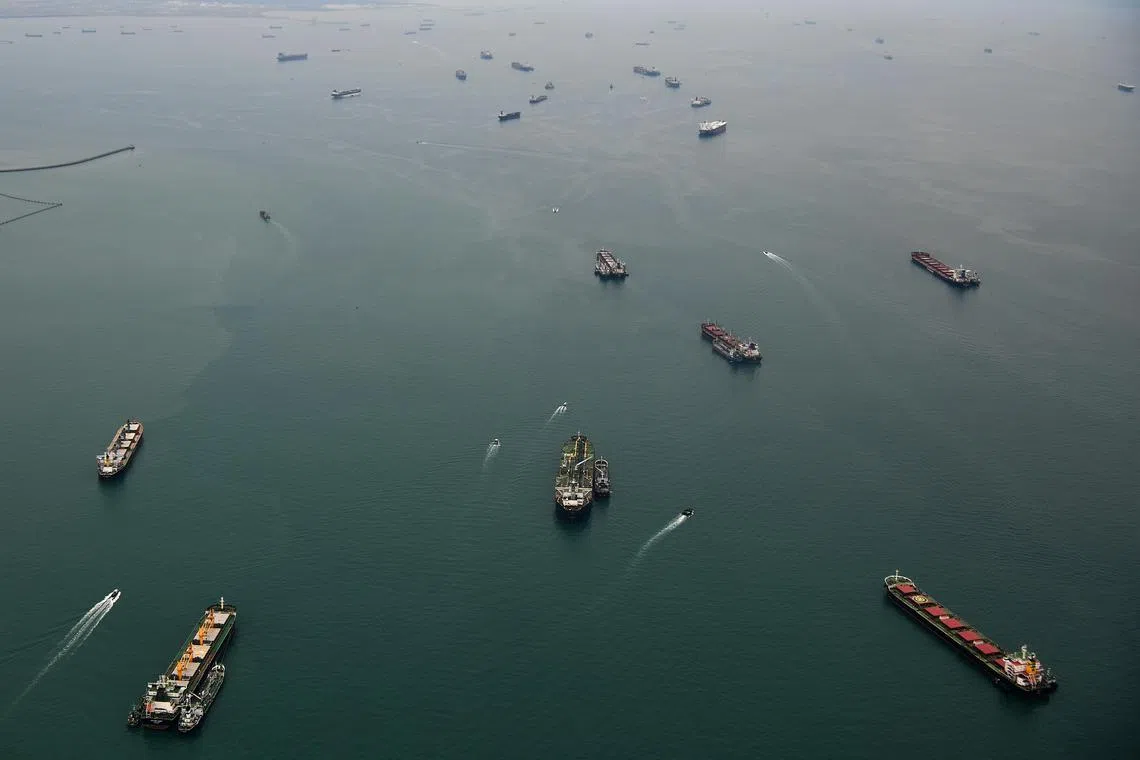Philippines’ Supreme Court rules 2005 oil exploration deal with China, Vietnam is void
Sign up now: Get insights on Asia's fast-moving developments

The three countries were to jointly research the petroleum resource potential in the South China Sea.
ST PHOTO: LIM YAOHUI
MANILA – The highest court in the Philippines has declared as “unconstitutional and void” a 2005 exploration agreement in the South China Sea involving oil companies from the Philippines, China and Vietnam.
In a summary of its ruling on Tuesday, the Supreme Court said the Joint Marine Seismic Undertaking (JMSU) among the Philippine National Oil Company, the China National Offshore Oil Corporation and the Vietnam Oil and Gas Corporation allowed wholly owned foreign corporations to explore the Philippines’ natural resources “without observing constitutional safeguards”.
Twelve justices voted in favour, two against and one abstained.
It took the court 15 years to decide on the petition filed in May 2008 by progressive Filipino legislators, who argued that the administration of then President Gloria Macapagal-Arroyo undermined Philippine sovereignty by agreeing to the JMSU.
Under the agreement signed in March 2005, the three countries were to jointly research the petroleum resource potential
An initial version of the deal signed in September 2004 was between just the Philippines and China. Vietnam protested and was included in the 2005 JMSU.
The three countries gathered pre-exploratory seismic data on possible oil reserves under the JMSU. But the deal ended in June 2008, a month after the petition against it was filed.
The Supreme Court agreed with the petitioners, saying the JMSU violated Section 2, Article XII of the 1987 Constitution that states the exploration, development and utilisation of the country’s natural resources “shall be under the full control and supervision of the State”.
The court also said it was clear the deal aimed to determine if petroleum exists in areas of the South China Sea covered by the JMSU.
“That the Parties designated the joint research as a ‘pre-exploration activity’ is of no moment. Such designation does not detract from the fact that the intent and aim of the agreement is to discover petroleum, which is tantamount to exploration,” said the court.
The ruling could affect the plans of China and the Philippines to resume talks on joint oil and gas exploration in the South China Sea. It was a key talking point between Chinese President Xi Jinping and Philippine President Ferdinand Marcos Jr
Ms Arroyo, who had signed off on the controversial JMSU, joined Mr Marcos during the state visit. He called her his “secret weapon” during the Beijing trip.
She said in a brief statement on Wednesday that she respects the court ruling.
A month before his state visit to Beijing, Mr Marcos had emphasised Manila’s right to exploit energy reserves in its territorial waters
Philippine Foreign Secretary Enrique Manalo on Wednesday told CNBC that it remains to be seen how the court ruling would affect the oil and gas exploration talks between the two nations.
But he said this is just one aspect of the relations between the two countries, which signed agreements in various areas like agriculture, infrastructure and renewable energy during Mr Marcos’ state visit.
“So it’s quite a broad range of cooperation between the Philippines and China ... And of course, both leaders also discussed political security issues. And there are quite a lot of agreements signed during the bilateral meeting and also among the private sector in separate meetings during the state visit,” said Mr Manalo.
Since taking office in June 2022, Mr Marcos has been striking a balancing act between maintaining economic relations with China and defending the Philippines’ sovereign rights in the South China Sea amid Beijing’s increasing military and construction activities in the disputed waters.



